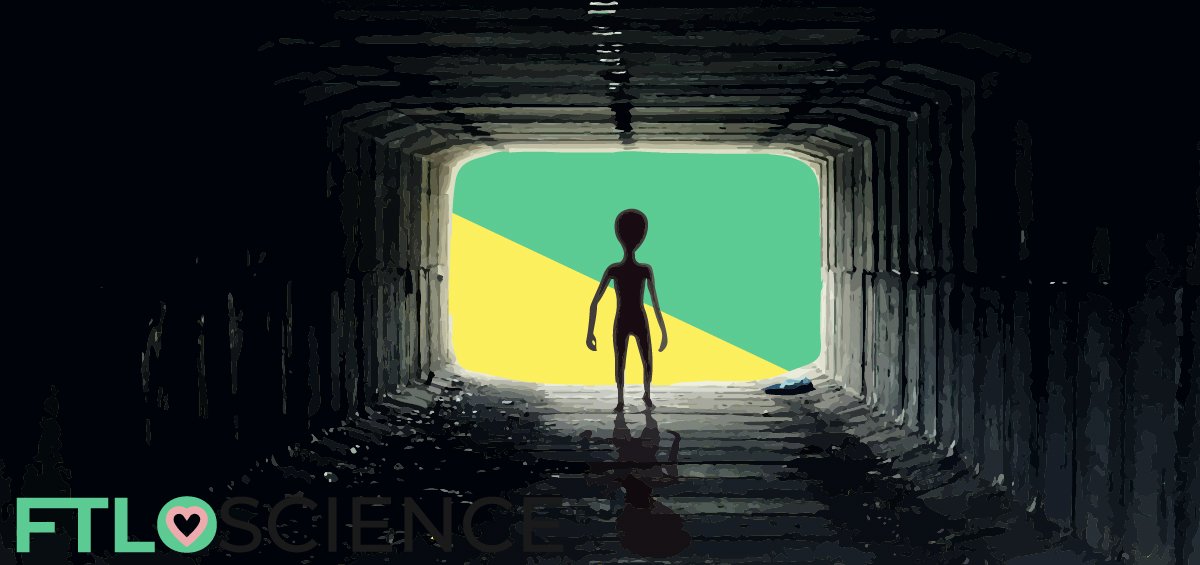How nice would it be if we weren’t alone in the Universe? Many believe that somewhere in the vast cosmos, there exist intelligent life forms (‘aliens’) simply waiting for human contact. While there’s nothing wrong with being hopeful of such a scenario, it is important to also remain objective in the search for truth. Belief and blind faith are among the most dangerous alien ideologies.
The Search For Extraterrestrial Life
It’s true that much of the cosmos is inaccessible to us due to limitations on the human lifespan. It takes 26 000 years traveling at the speed of light just to reach the center of the Milky Way. The nearest neighboring galaxy–Andromeda–is 2.5 million light-years away. With such timelines restricting our travels in space, it is only natural for us to speculate that there must be a planet out there harboring some form of life.
As of this moment, however, no such evidence of alien life forms has surfaced. That doesn’t mean we haven’t tried. The Golden Record aboard the Voyager 1 spacecraft launched in 1977 was humankind’s very first footprint that escaped the comfort of Earth’s orbit, a lonely traveler yearning for an extraterrestrial handshake. NASA’s space telescopes also scan millions of light-years across the universe for cosmic events, while radio waves from outer space are intercepted from sites like the Very Large Array in New Mexico.
Do You ‘Believe’ in Aliens?
Some time back, I came across an Instagram post and could not resist lending my time to engage in a healthy social media debate. The post suggested that not ‘believing in aliens’ was akin to looking into a spoonful of water and not believing there are sharks in the ocean. I pointed out that we had discovered zero evidence of alien life thus far, from which the logical conclusion was that we are alone in this vast cosmos, whether or not we choose to ‘believe’ it.

Sure enough, moments after I posted my comment, I received several replies. One user remarked that my comment was akin to looking in your backyard, seeing no one, and concluding that humans didn’t exist. This argument is flawed as we have ample evidence of humans and human activity. Of course, if we didn’t, that would be a totally valid claim.
Another comment discussed the eyewitness accounts of aliens that pervade pop culture and the internet. These are usually from individuals who recall seeing flying ‘saucers’ in the sky or being abducted by beings with big heads and small bodies (oh, the extent of human imagination). The trouble with this is that our brains, however advanced we think them to be, are prone to cognitive biases and outright hallucination. In a court of law, eyewitness testimony is held in the lowest regard—and rightfully so!
The problem with the post is the use of the word ‘believe’. There is a difference between being open to the existence of aliens and believing in them. While the concept of extraterrestrial life fuels our search for it, we must be careful to take as objective a perspective as possible, allowing us to separate fact from fiction.
Hope vs. Belief
The problem lies not in people fantasizing about the concept of extra-terrestrial life; countless such depictions appear constantly in film and writing, and they are a great source of entertainment. There is an issue, however, when this sense of wonder turns into belief. Belief in an idea when there is no evidence of its existence is known as blind faith, which leads to its own sets of problems.
The Problem with Blind Faith
In the scientific community, countless hypotheses are formed and then tested via experiments. Many scientists grow very fond of their hypotheses, going to great lengths to collect robust evidence that supports their claims. More often than not, however, the experimental data doesn’t agree with their ‘beliefs’, and scientists must learn to alter their hypothesis or throw it out altogether.
What is described above is the scientific method, used by generations of scientists to discover nature’s secrets. The problem with beliefs based on blind faith is that both hypotheses and conclusions are simultaneously constructed. ‘Aliens exist’. The data-collection part is simply disregarded, and the evidence is ignored.
Imagine a scientist who, having created a hypothesis, goes on to uncover experimental data that supports it. A fellow scientist then comes along and offers opposing data from a better-designed experiment. The original scientist—although personally attached to his/her idea—must now do the right thing. That is, to bring their original hypothesis out the back door and promptly shoot it dead.
The antithesis is an individual who chooses to walk down the road of blind faith, becoming immune to reason. By ingeniously leaving logic and rational thinking out of the equation, they put themselves in a position that is impervious to well-designed arguments. It’s akin to poking holes in a container that holds no water to begin with!
Choosing Knowledge over Belief
Although many of us aren’t scientists, we live in a time when scientists work hard to provide facts about the world. There is overwhelming scientific evidence that artificial sweeteners are completely safe, that alkaline water does nothing (positive) for your health, that genetically modified crops benefit both farmers and consumers. Yet people choose to ignore the voice of reason and expertise, choosing to believe baseless claims and hearsay.
We are blessed with so much knowledge about reality that our ancestors had no access to, it is astounding how many willingly choose to disregard the facts in favor of personal beliefs and blind faith. It would indeed be amazing if we one day made contact with an intelligent life form somewhere out there. But while we can be hopeful, we must remember to arm ourselves with the tools of scientific evidence and rational thinking.
About the Author

Sean is a consultant for clients in the pharmaceutical industry and is an associate lecturer at La Trobe University, where unfortunate undergrads are subject to his ramblings on chemistry and pharmacology.




